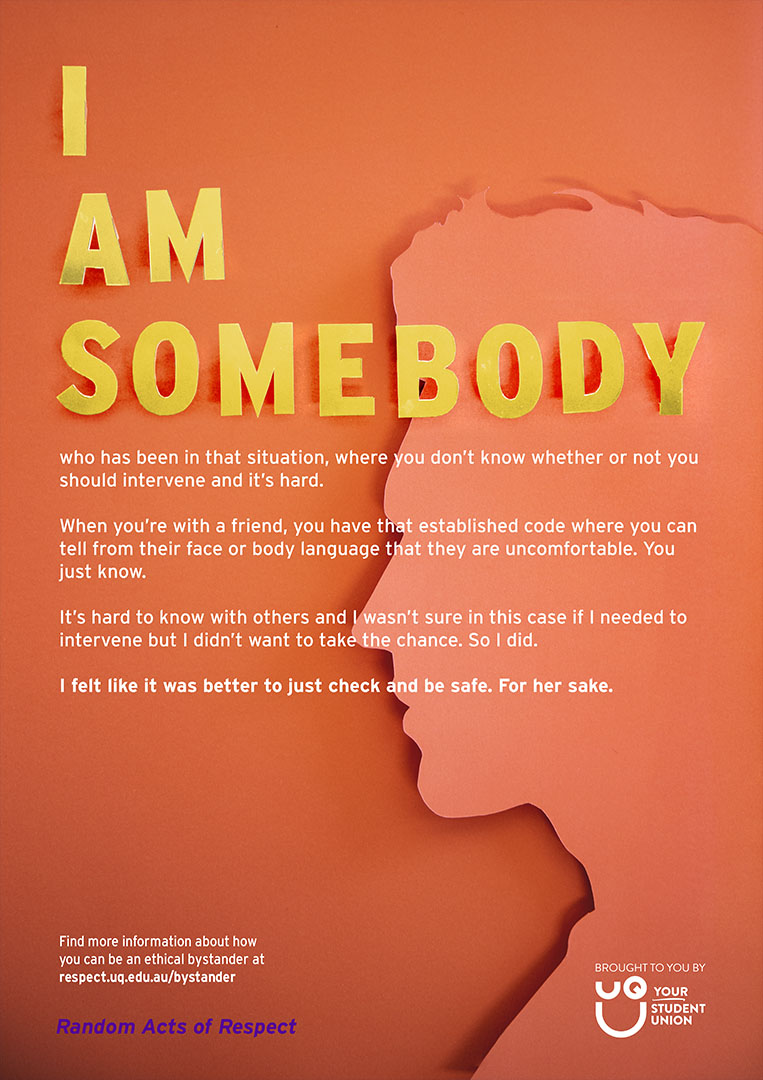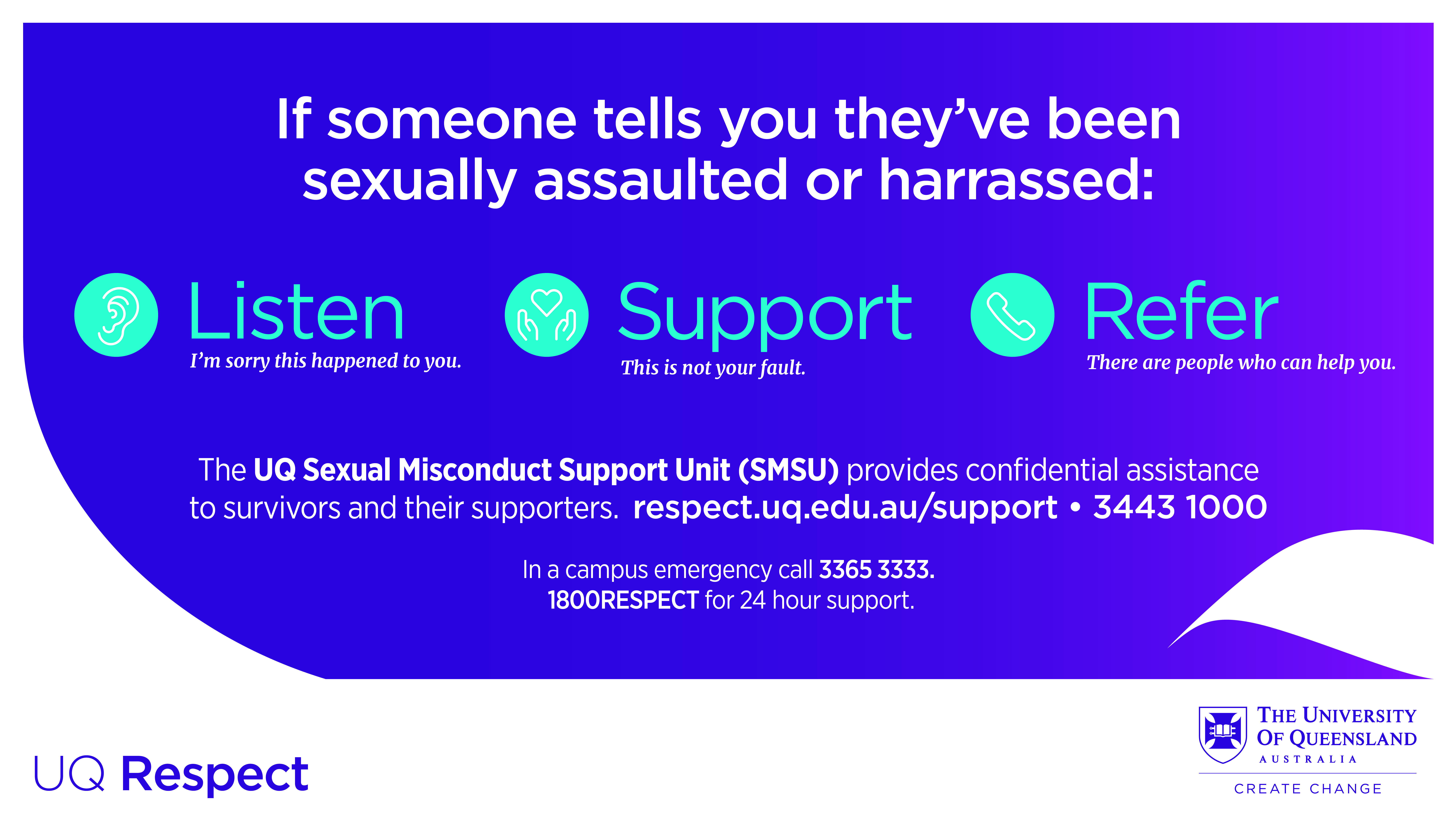2. How to be an ethical bystander
Knowing how to intervene can be challenging. The most important thing to consider is safety for yourself and others involved. Often you don’t have to intervene directly or confront the person, distraction can also be a good technique! When considering your intervention, remembers the 5 Ds: Distract, Delegate, Direct, Delay, and Document.
Distract
Indirect action to de-escalate or change the trajectory of a situation is often a safe and effective intervention. For example, if you witness a friend getting unwanted attention at a bar, you could cut in and say to them “Hey, come to the bathroom with me”. If you see someone being aggressive on a bus, you could ask start up a conversation with the person experiencing the aggression or drop something to create a distraction.
Delegate
Sometimes the best way to intervene is to get someone else to! Look around for a police officer or person of authority (bus driver, staff members etc.). You may be able enlist others people present to help, such as person’s friends, bar staff, door staff or a university staff member depending on where you are. Enlisting someone else to stay present or Distract the situation may be useful while you find someone to delegate to. Remember to download the UQ SafeZone App to give you direct access to on campus security.
Direct
If you are going to directly intervene in a situation, be very careful to assess your safety first. You can directly tell a perpetrator their behaviour is not appropriate with something like “your action/comments are disrespectful and not ok with me”. You may also be able to reassure the person experiencing the harassment and help them move away.
If one of your peers is making respectful comments, you can use subtle direct approaches to show you don’t agree. You could simply roll your eyes or say “Hey, that’s not ok”. The Line has some great tips for how to address gender inequality and misogyny with your mates.

Delay
Bystanders can play an important role even after an incident has occurred. Checking in with the person who experienced the harassment and offering support is a good idea. More information on how to support someone who has experienced a sexual assault is available here.
We have launched the student-focused Listen, Support, Refer campaign, which aims to promote sensitive and trauma-informed responses to disclosures by peers.
Document
Reporting to the police or the University after an incident can provide useful information for investigating a crime and also helps to capture an understanding of challenges and concerns within a community. If you witness something concerning on campus you can report it here and can choose to remain anonymous if you wish. More information about reporting incidents of sexual assault or harassment is available here.
Documenting an incident on your phone can be helpful, depending on the situation. It’s a good idea to try to capture street signs or landmarks to document the location of an incident. It’s important to consider respect and privacy. Never post such footage online or use it without the permission of the survivor.

